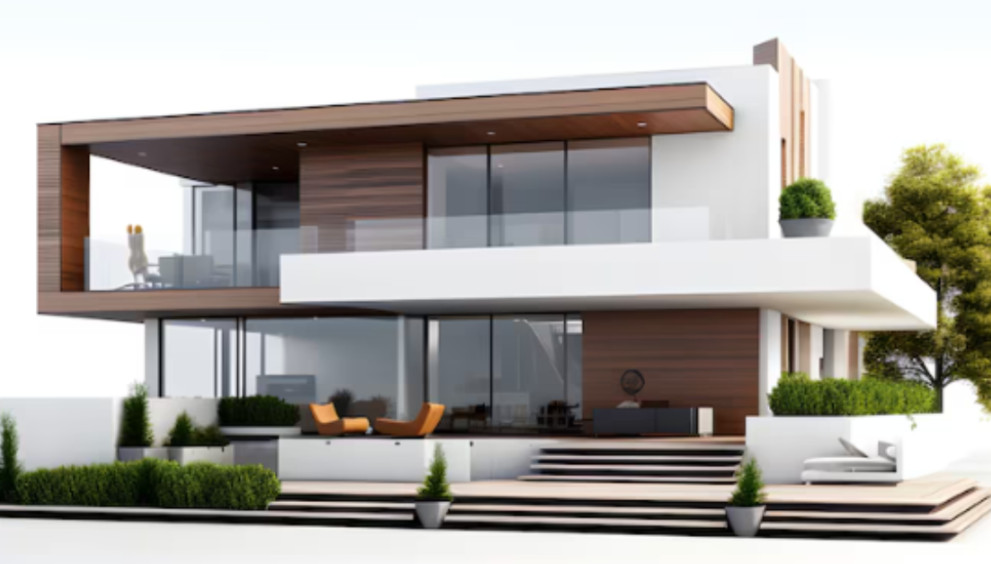Vincent Schachter Cruz Modular: Revolutionizing the Future of Modular Design

In the ever-evolving landscape of modular design and architecture, Vincent Schachter Cruz has emerged as a groundbreaking force. Known for his innovative approach and visionary concepts, Schachter Cruz has redefined what modularity means in the 21st century. This article delves into the fascinating world of Vincent Schachter Cruz Modular, exploring his impact on the industry, his notable projects, and the future of modular design under his influence.
Who is Vincent Schachter Cruz?
Vincent Schachter Cruz is a renowned architect and designer celebrated for his pioneering work in modular architecture. With a background in both traditional architecture and modern design principles, Schachter Cruz has created a niche for himself by seamlessly integrating functionality with aesthetic appeal.
Early Life and Career
Born and raised in a city rich in architectural history, Schachter Cruz’s early exposure to diverse architectural styles profoundly influenced his career. He pursued formal education in architecture, honing his skills and developing a unique design philosophy that blends innovation with practicality. His career began with small-scale projects, but his distinctive approach quickly garnered attention, leading to larger and more ambitious endeavors.
Design Philosophy
Vincent Schachter Cruz’s design philosophy revolves around the principles of modularity and flexibility. He believes that modular design should not only address current needs but also anticipate future requirements. This forward-thinking approach ensures that his designs remain relevant and functional long after their initial construction. Schachter Cruz integrates advanced technologies with traditional design techniques to create spaces that are both functional and visually striking.
The Concept of Modular Design
Modular design is a method of construction that involves creating structures from pre-fabricated modules or units. This approach offers numerous advantages, including reduced construction time, cost savings, and increased flexibility. Vincent Schachter Cruz has taken this concept to new heights by incorporating innovative materials, technologies, and design principles.
Benefits of Modular Design
- Efficiency: Modular construction allows for faster project completion compared to traditional methods.
- Cost-Effectiveness: By using standardized modules and materials, modular design can lead to significant cost savings. The reduced need for on-site labor and materials also contributes to lower expenses.
- Sustainability: Modular design promotes sustainability by minimizing waste and optimizing resource use. Pre-fabricated modules are often built in controlled environments, reducing the environmental impact of construction activities.
- Flexibility: Modular structures can be easily expanded, reconfigured, or relocated as needed. This adaptability makes modular design an ideal solution for a wide range of applications.
Notable Projects by Vincent Schachter Cruz
Vincent Schachter Cruz’s portfolio includes a diverse array of modular projects, each showcasing his unique approach to design and construction. Here are some of his most notable projects:
1. The Modular Urban Oasis
One of Schachter Cruz’s standout projects is the Modular Urban Oasis, a high-rise residential building that exemplifies his commitment to sustainable living. The design includes green roofs, energy-efficient systems, and flexible living spaces, making it a model for modern urban living.
2. The Innovative Workspace Hub
Schachter Cruz’s Innovative Workspace Hub is a prime example of how modular design can revolutionize office environments. The hub consists of modular units that can be easily reconfigured to accommodate different types of workspaces, from open-plan offices to private meeting rooms. The design emphasizes collaboration and adaptability, reflecting the changing nature of work.
3. The Eco-Friendly Modular Home
The Eco-Friendly Modular Home is a testament to Schachter Cruz’s dedication to sustainable design. This project features a series of modular units that are highly energy-efficient and environmentally friendly. The use of renewable materials, advanced insulation techniques, and green technologies makes this home a model of modern eco-conscious living.
The Future of Modular Design
Vincent Schachter Cruz’s work has significantly influenced the future of modular design. His innovative approach and commitment to sustainability are shaping the way architects and designers approach modular construction. Here’s a look at some of the trends and developments that are likely to shape the future of modular design:
1. Advanced Materials and Technologies
The future of modular design will be driven by advancements in materials and technologies. Schachter Cruz’s use of cutting-edge materials, such as eco-friendly composites and high-performance insulation, is paving the way for more efficient and sustainable modular structures. Additionally, the integration of smart technologies and automation will further enhance the functionality and adaptability of modular designs.
2. Customization and Personalization
As modular design becomes more sophisticated, the focus will shift towards greater customization and personalization. Schachter Cruz’s projects often incorporate modular units that can be tailored to individual preferences and needs. This trend will continue to evolve, allowing for even greater flexibility and personalization in modular construction.
3. Integration with Urban Planning
Modular design is increasingly being integrated into urban planning and development. Schachter Cruz’s projects, such as the Modular Urban Oasis, demonstrate how modular structures can address urban challenges such as housing shortages and sustainability. The future of modular design will see greater collaboration between architects, urban planners, and policymakers to create innovative solutions for urban living.
Challenges and Opportunities
While modular design offers numerous benefits, it also presents certain challenges. Vincent Schachter Cruz’s work addresses many of these challenges, but ongoing research and development are needed to overcome them. Here are some of the key challenges and opportunities in modular design:
Challenges
- Regulatory Hurdles: Modular construction is often subject to complex regulations and building codes, which can vary by region. Navigating these regulations can be a challenge for modular designers and builders.
- Public Perception: There is sometimes a perception that modular structures lack the quality and durability of traditional buildings. Overcoming this perception requires demonstrating the benefits and reliability of modular design through successful projects.
- Supply Chain Issues: The supply chain for modular construction materials and components can be complex and prone to disruptions. Ensuring a reliable supply chain is crucial for the success of modular projects.
Opportunities
- Innovation: Modular design offers opportunities for innovation in construction techniques, materials, and technologies. Embracing these opportunities can lead to more efficient and sustainable building solutions.
- Market Growth: The demand for modular construction is expected to grow as more people recognize its benefits. This growth presents opportunities for designers and builders to expand their expertise and explore new markets.
- Collaboration: Collaboration between architects, engineers, and builders is essential for the success of modular projects. By working together, these professionals can address challenges and develop innovative solutions.
Conclusion
Vincent Schachter Cruz has made a profound impact on the field of modular design, redefining what is possible in modern architecture. His innovative approach, commitment to sustainability, and visionary projects have set new standards for modular construction. As the industry continues to evolve, Schachter Cruz’s work will undoubtedly remain at the forefront of modular design, shaping the future of architecture and construction. Whether through his groundbreaking projects or his contributions to design philosophy, Vincent Schachter Cruz’s legacy is one of innovation, excellence, and forward-thinking design.







